Jose Mourinho has taken flak all season long. That's in spite of the fact he's led Manchester United to the Europa League and now back onto the Wembley stage. But it's nothing compared to what the United boss at the time was facing back in 1990.
Then, as now, the manager was under pressure not only to deliver meaningful trophies but to win in style. Then, as now, there was an FA Cup final to look forward to - even in the face of widespread dissatisfaction with results and with the football on offer.
Then, as now, there was big money spent with little evidence that the team would ever get supporters' blood pumping.
Hard to imagine now given his successes but that manager was Sir Alex Ferguson. Mourinho’s second-placed outfit are bona-fide superstars next to his one.
United had been badly mismanaged and trophy-less for a long time but still there persisted a belief on the terraces that they should be winning and winning in a manner befitting the stature of Sir Matt Busby’s club; European champions in 1968.
The team had played some attractive stuff under Ron Atkinson but were a little soft – especially when midfielder Bryan Robson didn’t play. Atkinson’s replacement – a certain pre-knighthood Ferguson – produced some encouraging results during his first season in charge but things went south very quickly.
By the end of that 1989-90 season they would end up 13th – their worst league finish since being promoted back to the top flight in 1975. That despite the fact that the squad had been expensively furnished with the signings of Danny Wallace, Neil Webb, Paul Ince and Gary Pallister.
Things were critical; Ferguson was not simply under pressure but there were outright demands for his sacking.
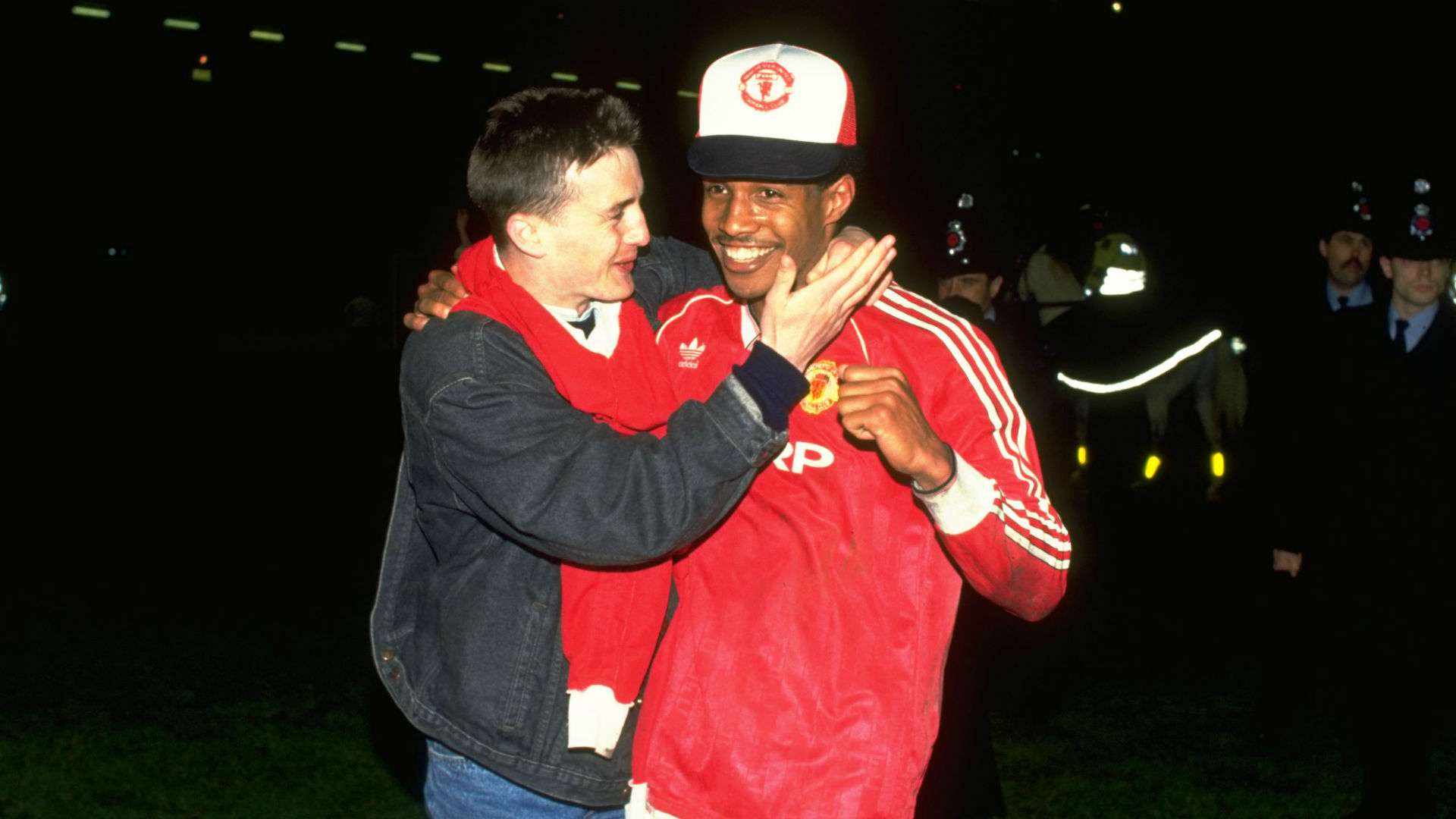
“Fergie had spent big the previous summer,” says Wayne Barton, author of The Man Who Kept The Red Flag Flying – the Jimmy Murphy biography .
“It was the most expensively assembled side in the club’s history. There was a tremendous amount of pressure. United were expected to win the league.”
They never got close. The nadir came on a cold December day when minnows Crystal Palace visited Old Trafford and took home the points. Palace were terrible that season themselves and had already been slapped 9-0 by champions-elect Liverpool. In all United were to endure a run of 11 consecutive matches without a solitary league win. At one stage they looked a decent bet for relegation. Crowds for home games had gone down to the low thirty-thousands.
“There was a run around Christmas they lost four in six and they scored one goal in those six games,” Barton says. “Those were dire times. He was on borrowed time a little bit because he spent all that money and, if anything, they had gone backwards from the Ron Atkinson era. They lost seven or eight games before Christmas.”
One United fan by the name of Pete Molyneux had brought along a homemade banner that day with an accurate summary of the feeling widespread in the stands.
3 YEARS OF EXCUSES AND IT’S STILL CRAP
TA RA FERGIE
That white bedsheet has become legendary in Manchester. It captured the spirit of the times perfectly and showed how much Ferguson would have to do just to meet expectations – if he could somehow survive the season.
While those at the club always insist that the manager’s job was never truly in danger, by the time United played Nottingham Forest in the FA Cup early that January there was a palpable sense that a failure to progress there and he would have to go.
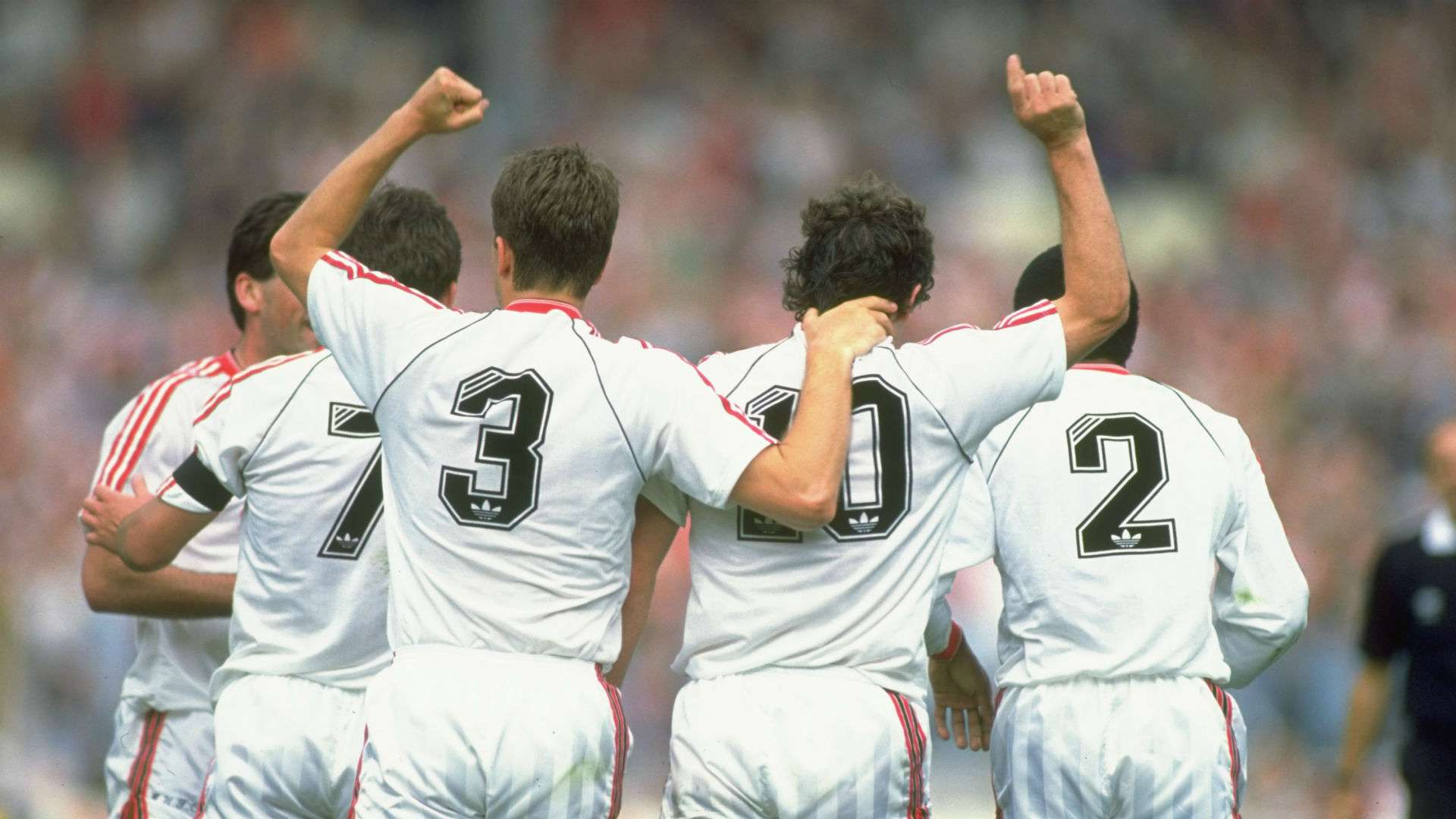 Getty Images
Getty Images
“He was odds on to be sacked before the end of the season,” says Barton. “Speculation was raging. The pundits in the paper were saying if they lost against Forest he wouldn’t survive. It was the cup run keeping him alive.”
Mark Robins etched his name into United folklore by giving his boss a stay of execution and setting up a fourth-round date at lowly Hereford.
“Their league form was still rubbish,” says Barton. “They lost their next two games after. His job was still at risk there.
“He could have lost that game and probably would have been sacked. They scored with about four minutes to go on a terrible pitch.”
He got lucky more than once in the draw; first by coming out opposite Oldham in the semi-finals after wins against Newcastle and Sheffield United and then again when Palace somehow upset Liverpool in the other one.
Onward to Wembley. United would eventually need a replay to dispose of Palace after a 3-3 thriller. Left-back Lee Martin scored the only goal of the second game. But Ferguson finally had something to build on.
“Getting there and winning the trophy was a massive boost because it was the first one under Ferguson and it bought him that little bit more time,” says Barton. “It did a lot to give that squad confidence. It was a crucial moment in United’s history.”
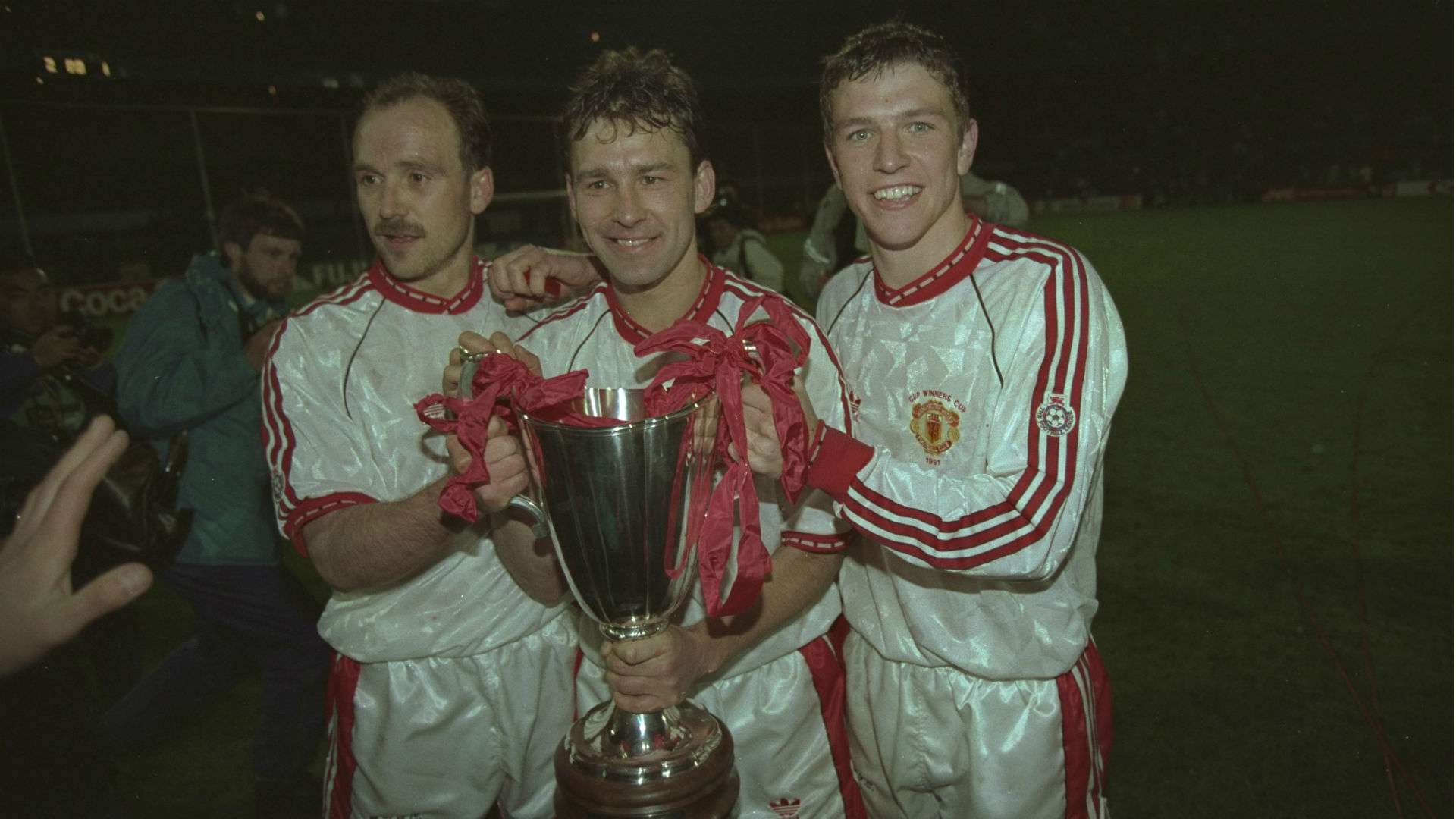 Getty Images
Getty Images
The following season English teams were re-admitted to European football after the ban stemming from Heysel in 1985. United set about turning Barcelona over in the Cup Winners’ Cup final in Rotterdam.
“Because they hadn’t played in European football for a while, the English style of play was new to those continental players they were coming up against,” says Barton. “They were caught cold by it.”
While the FA Cup bought Fergie time, it was the European win which gave United steam. They knew then what it took to meet expectations and got into winning habits.
“It wasn’t like they didn’t have the talent,” Barton says. “It’s just that they were so burdened by the weight of expectation. When they started winning games the confidence blossomed from that.
“Barcelona were widely considered to be the best team in Europe. It was a huge shot in the arm. Winning those games was enough to get momentum.”
The League Cup fell next; then that first crucial Premier League title. In the transfer market everything Ferguson touched turned to gold. Denis Irwin came in 1990, Peter Schmeichel and Paul Parker a year later. Eric Cantona in 1992 would turn a great team into an exceptional one.
But it was in that FA Cup run that Ferguson's gold-laden journey truly began; the seed planted.
Had there been defeat to Forest or Hereford or anyone else along the way there would be no 1999 and no 2008. There would be no history for Ferguson to write. There would be no banner in Old Trafford which today reads EVERY SINGLE ONE OF US LOVES SIR ALEX FERGUSON.
And the standards Ferguson set made life a hell of a lot more difficult for his successors. He built on the foundations of Sir Matt Busby and satisfied those demands that United not only had to win but win in style.
“Because of what Ferguson did, as we saw with Louis Van Gaal, winning the FA Cup is no longer enough,” says Barton. “It still is a big trophy but Van Gaal could have finished fourth and probably kept his job.
“If you look at Mourinho it’s not enough United are winning but they have to win in a certain way. It shows you what a complex job it is to coach at that level. Every single game is a cup final.”
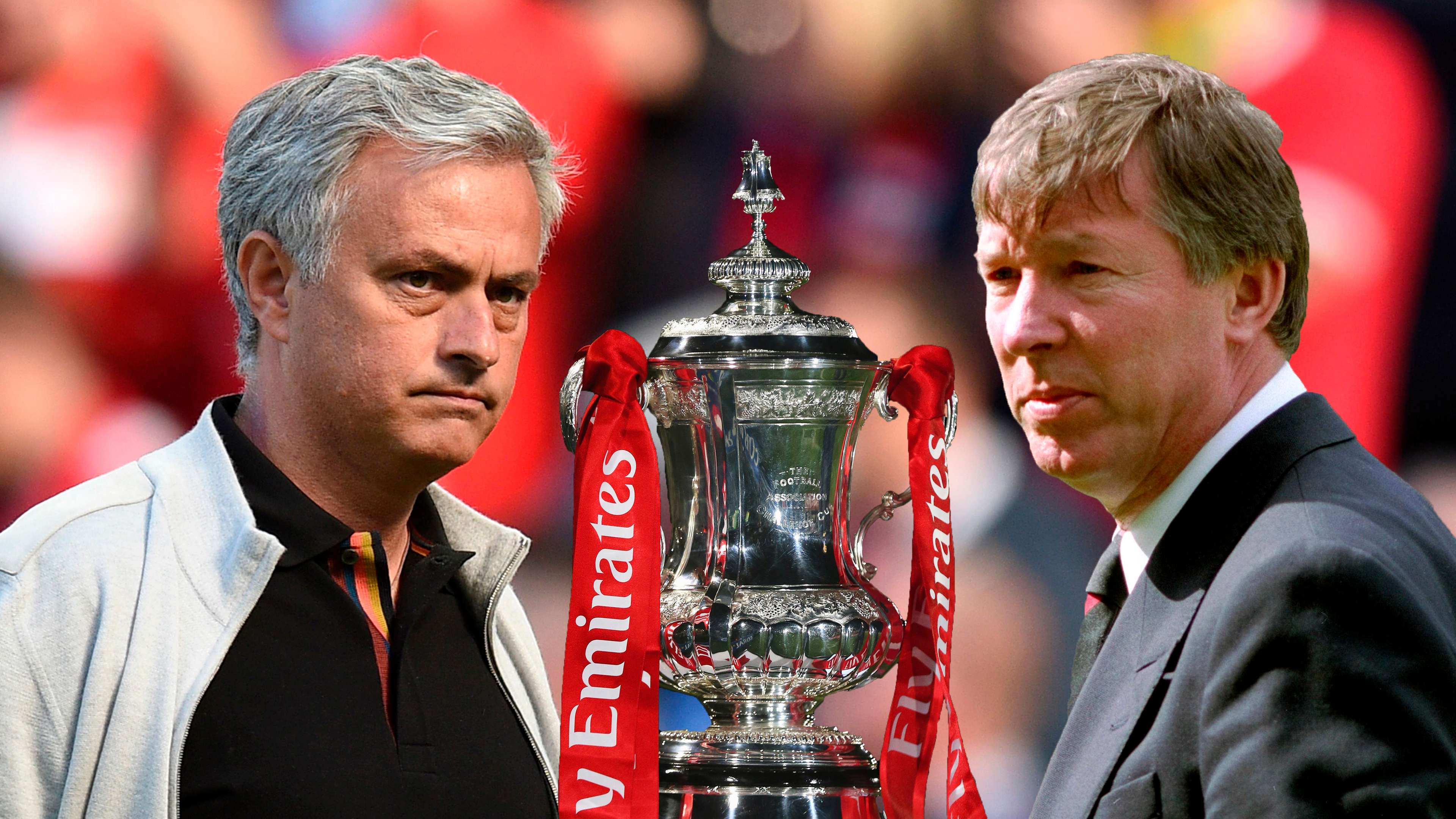
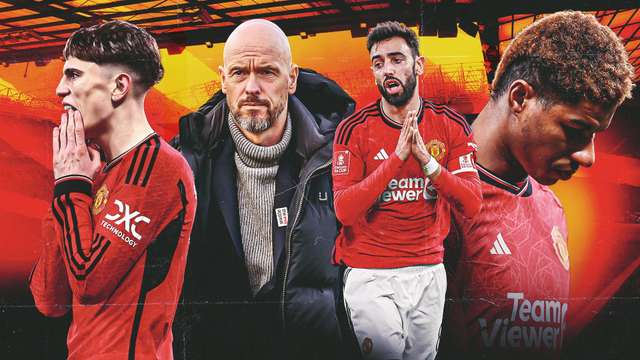
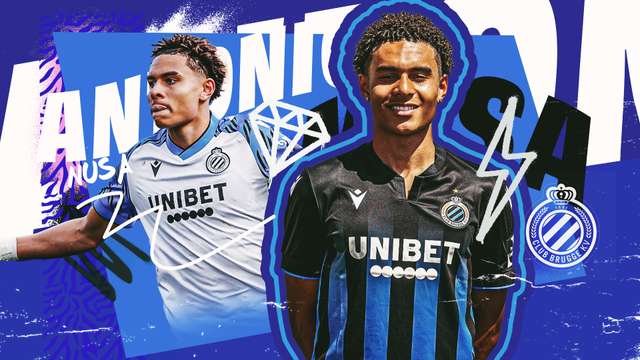
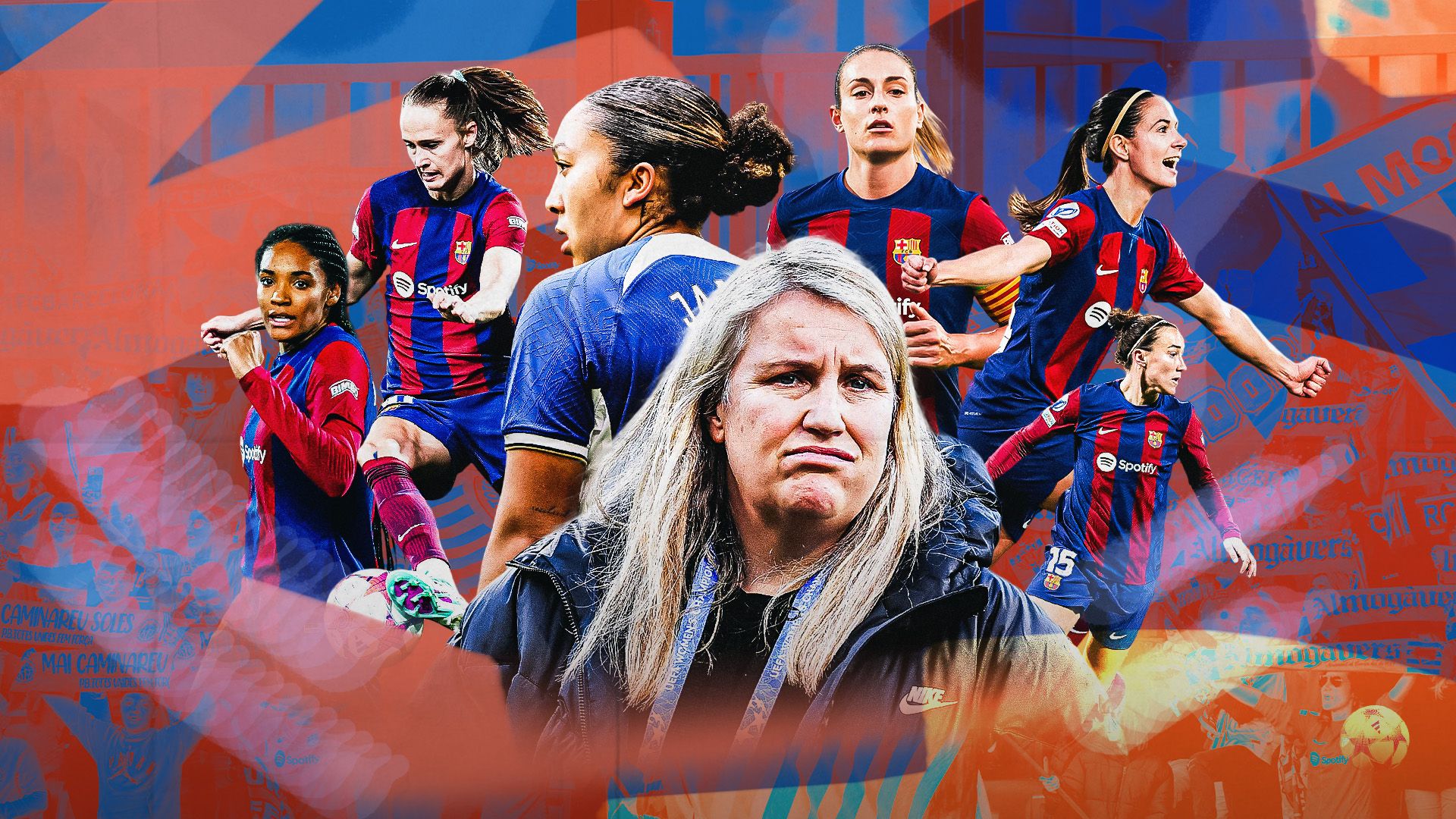.jpg?auto=webp&format=pjpg&width=640&quality=60)
.jpg?auto=webp&format=pjpg&width=640&quality=60)